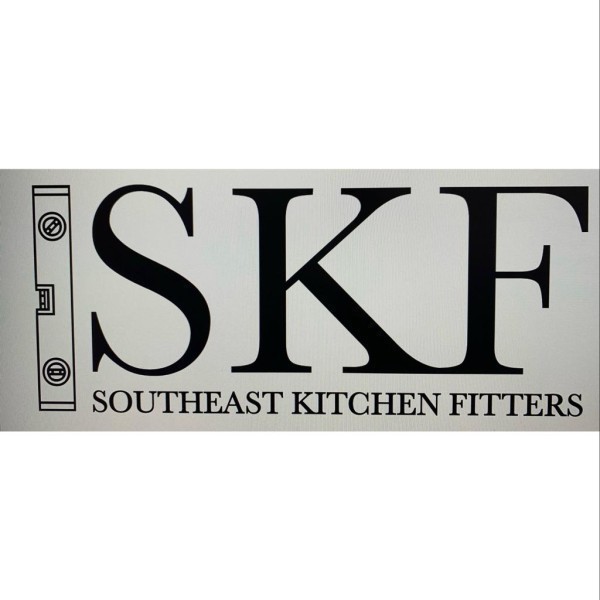Understanding the Role of Kitchen Designers in Ewell
Kitchen designers in Ewell play a pivotal role in transforming ordinary kitchens into extraordinary spaces. They blend creativity with functionality, ensuring that every kitchen they design meets the unique needs and preferences of their clients. But what exactly do these professionals do, and why are they so essential in the kitchen renovation process? Let's delve into the world of kitchen design and explore the myriad ways these experts can enhance your home.
The Importance of Kitchen Designers
Kitchen designers are not just about aesthetics; they bring a wealth of knowledge and expertise to the table. Their primary goal is to create a space that is both beautiful and functional. They consider everything from the layout and flow of the kitchen to the materials and finishes that will be used. By working with a kitchen designer, homeowners can ensure that their kitchen is not only visually appealing but also practical and efficient.
Maximising Space and Functionality
One of the key challenges in kitchen design is making the most of the available space. Kitchen designers in Ewell are adept at finding creative solutions to maximise both storage and workspace. They can suggest innovative storage solutions, such as pull-out pantries or corner cabinets, that make the most of every inch of space. Additionally, they can help plan the layout of appliances and work areas to ensure a smooth workflow, making cooking and cleaning more efficient.
Incorporating Personal Style
Every homeowner has their own unique style, and a good kitchen designer will take this into account when planning a new kitchen. Whether you prefer a sleek, modern look or a cosy, traditional feel, kitchen designers can help bring your vision to life. They can suggest colour schemes, materials, and finishes that reflect your personal taste while ensuring that the overall design remains cohesive and functional.
The Design Process: From Concept to Completion
The journey of designing a kitchen involves several stages, each crucial to the final outcome. Understanding this process can help homeowners appreciate the value that kitchen designers bring to their projects.
Initial Consultation and Planning
The first step in the design process is an initial consultation. During this meeting, the designer will discuss the homeowner's needs, preferences, and budget. They will also take measurements of the existing kitchen space and discuss any structural changes that may be necessary. This stage is all about gathering information and setting the foundation for the design.
Design Development
Once the initial consultation is complete, the designer will begin developing a design concept. This involves creating detailed plans and drawings that illustrate the proposed layout and design elements. The designer will also select materials, finishes, and fixtures that align with the homeowner's style and budget. This stage may involve several revisions as the designer and homeowner work together to refine the design.
Implementation and Installation
After the design is finalised, the implementation phase begins. This involves ordering materials, coordinating with contractors, and overseeing the installation process. The designer will ensure that everything is installed according to plan and that any issues are addressed promptly. This stage requires careful coordination and attention to detail to ensure a smooth and successful installation.
Choosing the Right Kitchen Designer in Ewell
With so many kitchen designers to choose from, finding the right one for your project can be a daunting task. However, by considering a few key factors, homeowners can make an informed decision and select a designer who will meet their needs and exceed their expectations.
Experience and Expertise
When choosing a kitchen designer, it's important to consider their experience and expertise. Look for designers who have a proven track record of successful projects and who specialise in the type of design you're interested in. Experienced designers will have a deep understanding of the latest trends and technologies, as well as the skills needed to tackle any challenges that may arise during the design process.
Portfolio and References
Reviewing a designer's portfolio can provide valuable insight into their style and capabilities. Look for projects that are similar in scope and style to what you're envisioning for your kitchen. Additionally, ask for references from past clients to get a sense of the designer's professionalism and reliability. Speaking with previous clients can provide valuable information about the designer's communication skills, attention to detail, and ability to meet deadlines.
Communication and Collaboration
Effective communication is key to a successful design project. Choose a designer who listens to your needs and ideas and who is willing to collaborate with you throughout the process. A good designer will be open to feedback and will work with you to ensure that the final design meets your expectations. Look for someone who is approachable and easy to work with, as this will make the design process more enjoyable and productive.
Trends in Kitchen Design
The world of kitchen design is constantly evolving, with new trends and innovations emerging every year. Staying up-to-date with these trends can help homeowners make informed decisions about their kitchen renovation projects.
Open-Plan Kitchens
Open-plan kitchens have become increasingly popular in recent years, as they create a sense of space and connectivity within the home. By removing walls and barriers, open-plan kitchens allow for seamless interaction between the kitchen, dining, and living areas. This design is ideal for families and those who love to entertain, as it encourages socialising and makes it easier to keep an eye on children while cooking.
Smart Kitchens
Technology is playing an increasingly important role in kitchen design, with smart kitchens becoming more common. These kitchens feature appliances and fixtures that can be controlled remotely via smartphone or voice commands, making cooking and cleaning more convenient. From smart refrigerators that can create shopping lists to ovens that can be preheated from your phone, smart kitchens offer a level of convenience and efficiency that was once unimaginable.
Sustainable Materials
As environmental awareness grows, more homeowners are seeking sustainable materials for their kitchen renovations. This includes using recycled or reclaimed materials, as well as choosing energy-efficient appliances and fixtures. Sustainable design not only benefits the environment but can also result in cost savings over time, making it a win-win for homeowners.
Budgeting for a Kitchen Renovation
Renovating a kitchen can be a significant investment, so it's important to establish a realistic budget before beginning the project. By understanding the costs involved and planning accordingly, homeowners can ensure that their renovation stays on track and within budget.
Setting a Budget
The first step in budgeting for a kitchen renovation is to determine how much you're willing to spend. Consider your financial situation and set a budget that is both realistic and comfortable for you. Keep in mind that unexpected expenses can arise during the renovation process, so it's a good idea to set aside a contingency fund to cover any unforeseen costs.
Understanding Costs
Kitchen renovation costs can vary widely depending on the scope of the project and the materials and finishes chosen. Some of the main costs to consider include:
- Cabinetry and countertops
- Appliances
- Flooring
- Lighting
- Plumbing and electrical work
- Labour and installation
By understanding these costs and prioritising your spending, you can make informed decisions about where to allocate your budget.
Cost-Saving Tips
There are several ways to save money on a kitchen renovation without sacrificing quality or style. Consider the following tips:
- Reuse existing appliances and fixtures if they are in good condition.
- Opt for cost-effective materials, such as laminate countertops or vinyl flooring.
- Consider a partial renovation, such as updating only the cabinetry or countertops.
- Shop around for the best prices on materials and labour.
Frequently Asked Questions
Here are some common questions homeowners have when considering a kitchen renovation:
- How long does a kitchen renovation take? The timeline for a kitchen renovation can vary depending on the scope of the project, but it typically takes between 6 to 12 weeks from start to finish.
- Do I need a permit for a kitchen renovation? Permit requirements vary by location, so it's important to check with your local council to determine if a permit is needed for your renovation.
- Can I live in my home during the renovation? Yes, but be prepared for some disruption to your daily routine. It's a good idea to set up a temporary kitchen in another part of your home.
- How can I ensure my kitchen design is timeless? Opt for classic materials and neutral colours that won't go out of style. Avoid overly trendy elements that may date quickly.
- What should I look for in a kitchen designer? Look for experience, a strong portfolio, and good communication skills. Choose someone who listens to your needs and is willing to collaborate with you.
- How can I make my kitchen more energy-efficient? Choose energy-efficient appliances, install LED lighting, and consider sustainable materials for your renovation.
In conclusion, kitchen designers in Ewell offer invaluable expertise and creativity, helping homeowners create kitchens that are both beautiful and functional. By understanding the design process, choosing the right designer, and staying informed about the latest trends, homeowners can ensure a successful and satisfying kitchen renovation experience.





